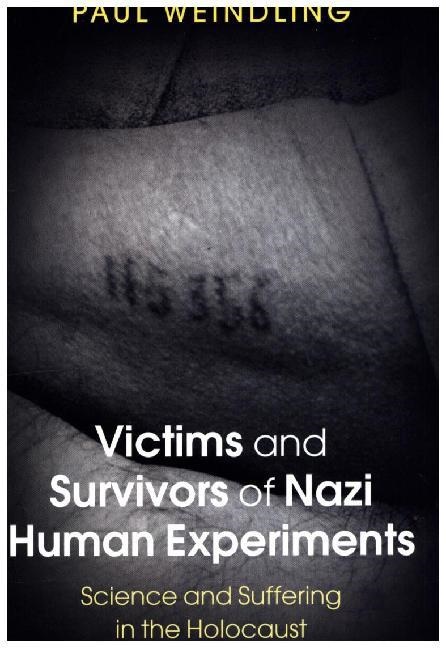Read more
While the coerced human experiments are notorious among all the atrocities under National Socialism, they have been marginalised by mainstream historians. This book seeks to remedy the marginalisation, and to place the experiments in the context of the broad history of National Socialism and the Holocaust. Paul Weindling bases this study on the reconstruction of a victim group through individual victims'' life histories, and by weaving the victims'' experiences collectively together in terms of different groupings, especially gender, ethnicity and religion, age, and nationality. The timing of the experiments, where they occurred, how many victims there were, and who they were, is analysed, as are hitherto under-researched aspects such as Nazi anatomy and executions. The experiments are also linked, more broadly, to major elements in the dynamic and fluid Nazi power structure and the implementation of racial policies. The approach is informed by social history from below, exploring both the rationales and motives of perpetrators, but assessing these critically in the light of victim narratives.>
List of contents
Foreword: Experiments Beyond the Nuremberg Paradigm
1. Victim Narratives
2. Nazifying Medical Research
3. On the Slippery Slope: From Eugenics to Experiments
4. Devalued Lives: "Euthanasia" Research
5. Racial Research
6. First SS Experiments 1939-41
7. Experiments and Extermination
8. Wartime Expansion
9. Infectious Threats 1942-45
10. Auschwitz: Reproductive Experiments
11. Skeletons and Anatomy
12. Pharmacology and Poisons
13. Scale and Structure
14. Evasion and Resistance
15. 1945 - Ruin and Relentless Research
Bibliography
Index
About the author
Paul Weindling is Professor in the History of Medicine in the Department of History, Oxford Brookes University, UK.
Report
Weindling's monograph is the first comprehensive inquiry to treat coerced experimentation as a distinct object of study, right down to the gory details of the tests themselves. In that vein, the book makes a tremendous contribution to existing scholarship by addressing the hitherto neglected experiences and perspectives of the victims ... An important and thought-provoking study that warrants the full attention of specialists in the field for its sophisticated documentation and revelatory insights. Bradley J. Nichols, University of Tennessee, Knoxville, USA German History 20150430

